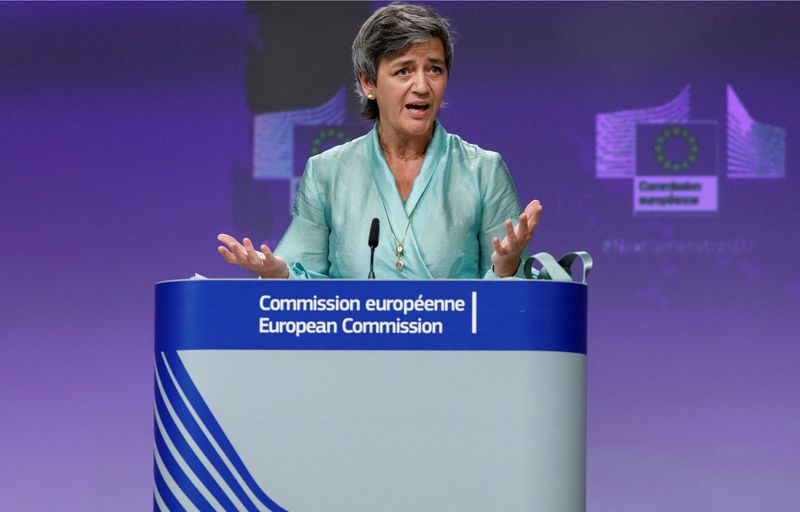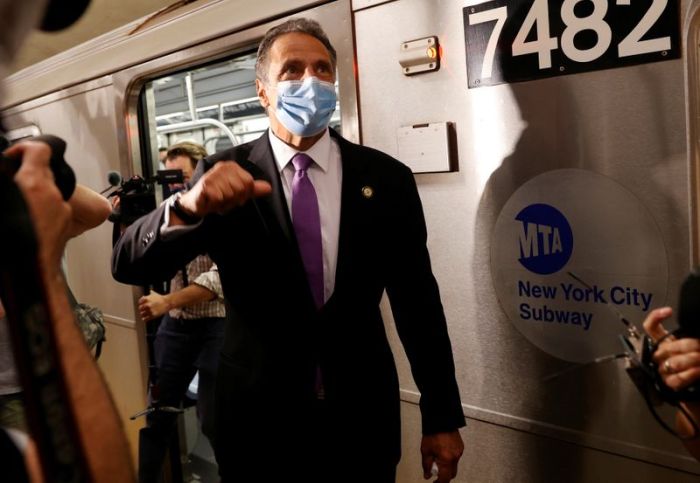BRUSSELS (Reuters) – The Europe Union will seek tougher checks on foreign state-owned or state-backed companies buying European firms to prevent the use of unfair subsidies, the EU antitrust chief said on Tuesday, the latest move to increase protection.
The bloc’s protectionist trend has accelerated as it strives to create European industrial champions and because of concerns wealthy foreigners might swoop on companies whose value has been reduced by the coronavirus crisis.
Margrethe Vestager said in an interview foreign companies use subsidies without the European Union’s knowledge or checks.
“There is a high risk that they will fragment the single market or un-level the playing field,” she said.
Vestager will next week present a proposal, known as the white paper on foreign subsidies, to tighten checks.
EU governments and the European Parliament will subsequently specify which EU interests could be harmed by foreign subsidies.
European companies with foreign state-backed shareholders could be investigated, she said, citing an old case of a tyre maker bought by a Chinese company, which was able to appear more competitive than rival European bidders because of its state subsidies, although this was never proved.
“I think it’s only appropriate that we also do our best when they (European companies) are met with unfair competition even in Europe because competitors here may have access to foreign subsidies,” Vestager said.
Vestager, who has approved EU state aid totalling more than 2 trillion euros to coronavirus-hit companies in the last two months, said carefully-monitored EU support differed from subsidies used by foreign companies.
“We know what is going on. We also know that it’s temporary in character, this is what characterises these many different issues,” she said.
“We know they are needed and the decisions we take minimise the risks of fragmentation of the single market and none of that is the case for foreign subsidies.”
(Reporting by Foo Yun Chee; editing by Marine Strauss and Barbara Lewis)



















